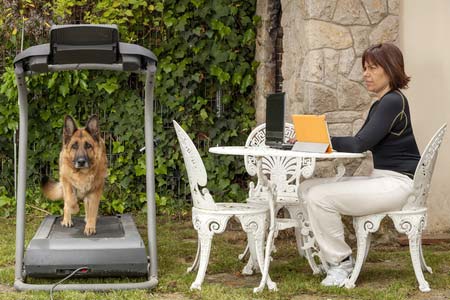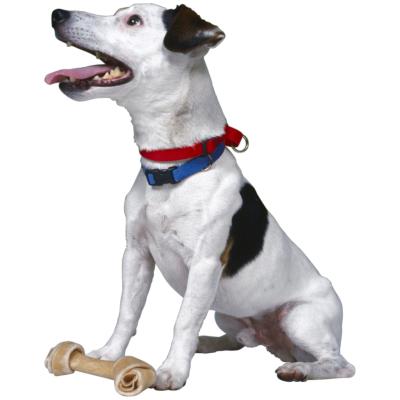
Dogs
One thing you have to remember in any dealings with puppies, especially very young ones in the two to four-month window of age, is that they are very impressionable.
In the first few months of their lives you can set them up for success or failure based on your interactions with them and your ability to guard them against psychological trauma. If you care for them when they need care, have reasonable expectations for them, and set limits of acceptable behavior and protect them from adversity, all should be well.
Raising puppies properly is an active process that requires you to understand how they might interpret your behavior toward them, including how you address them and how you handle them. If we largely ignore them, rarely speak to them, and hardly ever pet or touch them, they may grow up to be overly needy or withdrawn. On the other hand, if we burble at pups constantly, and pinch and prod them as if they were produce in a grocery store, that too can have negative consequences. Pups so treated become desensitized to human speech and averse to handling, and this can lead to problems down the road.
It is far better to meter speech and handle the pup in a way that it appreciates, so that it comes to enjoy human company, understands our utterances, and appreciates petting and physical contact.
Most people make the mistake of assuming that pups understand every word we say. This is certainly not the case and, for them, even when properly educated, English is a second language. Sure they will understand something from the tone in which a sentence or monologue is delivered, but the syntax, verbiage, and sentence structure are beyond their comprehension. A good analogy is to imagine finding yourself in downtown Shanghai without knowing a word of Chinese. That's what it must be like for a new pup finding itself airlifted from its nest into a new owner's home and being surrounded by a veritable babble of voices. Of course, a non-Chinese speaking person in downtown Shanghai understands the tone of address. The person would understand whether the person addressing him was angry or agitated, calm or perturbed, attempting to communicate or attempting to shun. But that's about as far as the understanding would go. The same sort of understanding applies to new puppies in homes with new owners. With this in mind, it is important to keep the tone of your address to a new pup relatively consistent and soothing. Remember, you're talking to a baby. Two reasonable deviations from "baby banter" that the pup will understand are sing-song praising tones and deeper, gruffer admonishment tones. Of course, most communications should be spoken in neutral tones, and most of the balance should be in the high sing-song praise category. Admonishments should be used sparingly, used when they are due, and should be brief but firm.
 Shining a Light on Laser Therapy
Some veterinarians view low-energy
Shining a Light on Laser Therapy
Some veterinarians view low-energy
 Be Proactive if Your Dog Gets Lost
What to Do When Your Dog Goes Missi
Be Proactive if Your Dog Gets Lost
What to Do When Your Dog Goes Missi
 The Best Kinds of Chews for Dogs
The Best Kinds of Chews for Dogs
The B
The Best Kinds of Chews for Dogs
The Best Kinds of Chews for Dogs
The B
 Human Foods Dogs Can and Can't Eat
Dedicated dog lovers tend to be ver
Human Foods Dogs Can and Can't Eat
Dedicated dog lovers tend to be ver
 Dog Itching and What Causes It
Main Reasons Your Dog May Be Itchy
Dog Itching and What Causes It
Main Reasons Your Dog May Be Itchy
Copyright © 2005-2016 Pet Information All Rights Reserved
Contact us: www162date@outlook.com